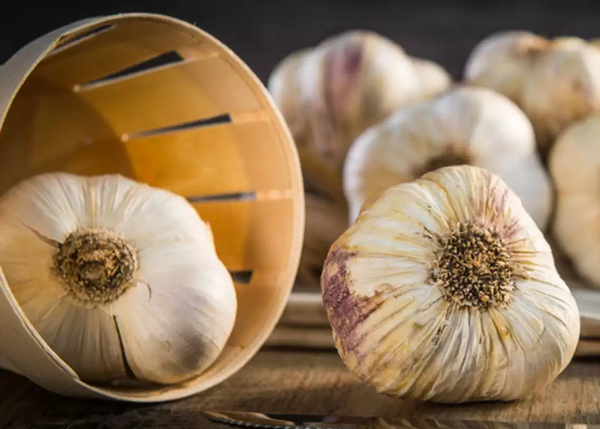Side effects of eating raw garlic everyday + video
Side effects of eating raw garlic everyday : Garlic, a close relative to onions, leeks, and shallots, has been a staple in culinary dishes around the world for millennia. Revered not only for its pungent flavor but also for its reputed medicinal properties, garlic has long been hailed as a miracle food. Consumed in its raw form, garlic is believed to offer the most potent health benefits, ranging from antimicrobial properties to cardiovascular health improvement. However, like many things in life, too much of a good thing can be problematic. Regular daily consumption of raw garlic can lead to various side effects. Let’s delve into some of these potential consequences.
Eat Garlic Every Day, And See What Happens to You:
1. Gastrointestinal Issues:
One of the most frequently reported side effects of consuming raw garlic, especially in large amounts, is gastrointestinal discomfort. This can manifest as heartburn, gas, nausea, and even diarrhea. Garlic contains fructans, a type of carbohydrate that can cause these problems in certain individuals, especially those with a sensitive stomach or irritable bowel syndrome (IBS).

2. Bad Breath and Body Odor:
It’s no secret that garlic is notorious for causing bad breath, medically termed halitosis. The sulfuric compounds, which give garlic its characteristic smell and taste, are responsible for this side effect. When garlic is crushed or chewed, these compounds are released, metabolized in the body, and then expelled via the lungs and sweat. This means not only will your breath carry the aroma, but your body may exude a garlic smell too.
3. Risk of Bleeding:
Raw garlic can act as a blood thinner. While this can be a benefit for those at risk of blood clots, it may not be advantageous for everyone. People taking anticoagulant drugs, or those about to undergo surgery, should be wary of consuming large amounts of raw garlic. The compounds in garlic can enhance the effects of these drugs, increasing the risk of bleeding.
4. Skin Irritation:
In some people, especially those with sensitive skin, direct contact with raw garlic can cause skin irritation, rashes, or even burns. The allicin in garlic, which has potent antibacterial and antifungal properties, can be too strong for certain skin types when applied directly.
5. Dizziness and Headaches:
Though not as common, some individuals report feelings of dizziness or even migraine-like symptoms after consuming significant quantities of garlic. The exact cause isn’t clear, but it’s speculated that the strong compounds in garlic might influence blood circulation to the brain or impact neurotransmitter activity.
6. Influence on Medication and Lowering Blood Pressure:
Garlic is known to interact with certain medications. Particularly, it can enhance the effects of medications used to treat hypertension, leading to an excessive drop in blood pressure. Furthermore, as mentioned earlier, garlic’s blood-thinning effects can potentiate the action of anticoagulant medications. Therefore, it’s crucial for individuals on medication to consult with their healthcare provider before incorporating significant amounts of raw garlic into their daily diet.
7. Aggravation of Digestive Disorders:
For individuals with gastrointestinal disorders like GERD (gastroesophageal reflux disease) or IBS, raw garlic can exacerbate symptoms. The potent compounds in garlic can irritate the gastrointestinal lining in susceptible individuals, leading to heightened symptoms of these disorders.
8. Allergic Reactions:
Though rare, it’s possible for some individuals to be allergic to garlic. Symptoms of a garlic allergy can range from mild skin rashes to more severe reactions like difficulty breathing. In such cases, even a small amount of garlic, whether raw or cooked, can trigger an allergic response.
9. Risk of Botulism:
This risk isn’t directly tied to the consumption of raw garlic per se, but rather the practice of storing raw garlic in oil at room temperature. Under such conditions, the spores of Clostridium botulinum, the bacteria that causes botulism, can thrive. Botulism is a rare but potentially fatal illness, and thus, it’s essential to be aware of proper storage practices.
10. Influence on Gut Microbiota:
Emerging research has started to highlight the intricate relationship between our diet and the health of our gut microbiota. While garlic’s antimicrobial properties can be beneficial against pathogenic bacteria, excessive consumption might disrupt the delicate balance of beneficial bacteria in the gut.
In the broader perspective, it’s evident that while garlic offers a plethora of health benefits, moderation is key. Understanding one’s body, its sensitivities, and the potential interactions of garlic with medications and pre-existing health conditions can guide individuals to make informed choices about their raw garlic consumption.


